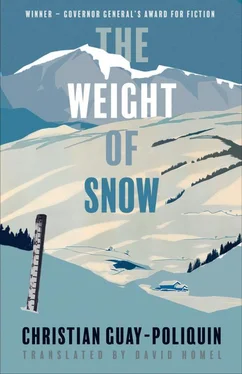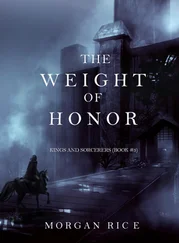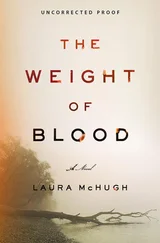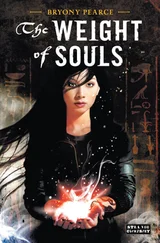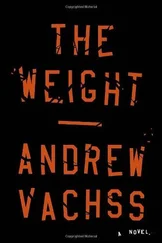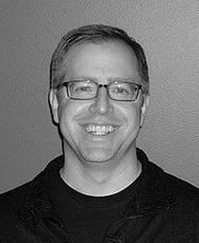Come on, I tell him, come with me, we’re not finished.
Wait, he whispers, staring at the flame wavering in its chimney.
Then he crosses himself, kisses the mound of snow, and falls in behind me.
We are by the shed now. As I open the doors, Matthias spots my tracks that lead toward the lake and disappear into the water.
You almost didn’t make it, he says.
The water is cold as ice.
We go into the little building. The ATV is there, loaded and ready to go. I take off the case I attached in front, and motion to Matthias to sit down at the controls. He refuses. He has never driven a vehicle like this, but I insist and he ends up agreeing.
You’ll be able to go everywhere with this thing.
He looks at me, unsure what I mean.
You’ll be able to leave the village, no problem. Just go and get your things from the car.
The light of hope gleams in his eyes.
You’ll see, this machine hardly uses any gas at all. You can make it to the city with what you have.
Matthias’s look of gratitude is so strong, it shakes me.
Thank you. Oh, thank you so much.
You’ll be careful on the road, okay? Don’t drive too fast, and don’t stay too long in one place. And avoid the checkpoints.
I’ll be all right, he promises, showing me the revolver in his belt.
I tell him how the starter cord works. Matthias pulls on it, and after eight or ten tries, the engine starts backfiring. Shouting over the racket, I quickly explain how the clutch works, and the winch, and the handbrake.
The next minute he is hugging me and kissing me on the forehead, then he pulls away, leaving deep tracks behind. I wave goodbye, but I don’t think he sees me.
A mild breeze blows through the forest. The sun is beating down. The landscape is made of running water and the snow looks like big kernels of corn, scattered with pine needles, branches, and dead leaves.
Before disappearing altogether, Matthias turns around, waves one quick hand in the air, and nervously grabs the controls again. As if he were riding a bucking bronco.
I sit down heavily in the snow. I feel happy, and worried too. For Matthias and for myself.
Your heart will surely freeze in your chest. You will look for me everywhere, but you will not find me. You will see only a few feathers blowing in the sunlight. Then, and only then, it will be your turn to be free, you will go on your way with no concern for me.
It is the new moon tonight. The stars pierce the darkness with dazzling precision. From time to time, the green-tinted northern lights illuminate part of the sky.
Sometimes, when the sky is cloudy, I hear thunder in the distance. As if spring were demanding to be let in. When I look carefully at the trees, I can see the buds are full of sap, ready to burst open.
My leg is doing better. I am still limping, but it’s better. Leaning on my poles, I can walk as long as I need to. Maria would be happy.
Since Matthias left I sleep here and there, exploring the abandoned houses in the village. I live off the provisions from the old woman’s house and a few unexpected discoveries.
All that is left now are heaps of icy, dirty snow, and everywhere are the ruins of winter. Wrecked cars in the streets, the yards, at the edge of the fields. Sagging structures, bent lamp posts, and uprooted trees.
The village is unrecognizable. And almost deserted. A few small groups of people move from place to place in search of food and fuel. Wary packs of skeletal coyotes.
One morning Jonas comes up to me.
Beautiful day, he declares, his arms flying in every direction. Warm day, the bears, the bears are going to come out of their dens soon. Did you see? Did you see the level and the colour of the river? Long trees, there are long trees as long as the steeple uprooted by the current. Some are even rubbing under the bridge. And then me, I don’t know what to do, what to do with my cows. I know they want to slaughter them, slaughter them soon, I know everybody’s starting to get hungry, everybody’s always hungry now. So I untied them so they’ll run away, so they’ll disappear. They went out of the stable, but they didn’t go far. I tried, I tried to scare them. That didn’t work either. It’s like they don’t want to leave. By the way if you see Matthias, tell him, tell him I’m ready to go sell my bottles. I’ve got a lot, and that’s going to add up to a lot, a lot of money.
Jonas stares into my face, then jams his hand into his turquoise coat and comes up with a slab of pemmican.
Here, he tells me in a confidential tone, you’ll see, it’s a little hard, but it’s very good. You’ll see.
He tells me to look for shelter because it’s going to rain, then he disappears.
He is right. It starts to rain right after he leaves. I look over my itinerary on the map. I figure it will take me fifteen days with the condition my leg is in. If all goes well. One last time I sort through my supplies, count out my provisions, and pack my bag. I fall asleep thinking how surprised my aunts and uncles are going to be when I walk into their camp.
The rain stopped during the night. Dawn has just laid its hand on the horizon.
I walk quickly through the village. When I reach the garage, I stop a minute. I have not set foot there ever since. If I open the door, will I see my father, working underneath a car? I hesitate, look around, then keep walking.
At the top of the hill, I pause in front of the house where Matthias and I spent the winter. My legs are fine, but my pack is heavy and I have to catch my breath. The porch looks like a battlefield. Further on, in the clearing, the snow gauge has fallen over.
The ground is spongy and the young ferns are feeding off last autumn’s dead grass. I lift my head. Before me the tall spruce stand straight and black. They mark the end of the village and the beginning of the forest.
The author would like to thank Mylène Bouchard, Brigitte Caron, Nicolas Rochette, Laurence Grandbois-Bernard, Aimée Verret, Michel Guay, Nicolas Grenier, Micheline Bérubé, and Jean-Marc Desroches, as well as the Canada Council for the Arts for its financial support.

DAVID HOMEL is the author of twelve novels. As a translator, he has twice won the Governor General’s Award. He lives in Montreal.
PHOTO BY MARINA VULICEVIC

CHRISTIAN GUAY-POLIQUIN was born just north of the U.S. border in Saint-Armand, Québec, in 1982. His first novel, Le fil des kilomètres , was published by both La Peuplade and Bibliothèque québécoise in Québec, and by Phébus in France. It appeared in English as Running on Fumes (Talonbooks, 2016). The Weight of Snow is being translated into nine languages (including Spanish, Italian, German, and Czech) and is enjoying great public and critical success in France and Québec.
PHOTO BY JULIEN BOIS
Also by Christian Guay-Poliquin
Running on Fumes
Translated by Jacob Homel
Published by Talonbooks
Praise for The Weight of Snow
“A dark and mesmerizing story, attentive to the dramatic and cold beauty of the landscape, the dislocating social bonds, the disarray and the dormant violence, choked by winter but ready to be reborn at the first signs of thawing… One of the strongest novels this season.”
Читать дальше
